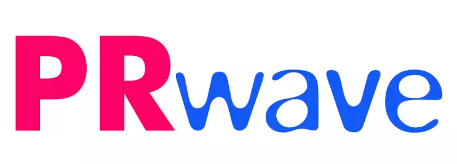Some of the most frequent and severe cyber security attacks ever recorded against businesses has been witnessed in that past couple of years. People have become so self-aware about their territories, more especially because of the prominence of the internet in the global sphere. The good news, however, is that security professionals are always on the radar, trying to work to remain a step ahead of the cybercriminal.
While they are at it, you cannot let your guard down and expect them to figure everything out for you. This means that you have to learn a thing or two about the online security issues, and how you can stay on top of them. For you, this may require you to learn some of the top online security threats and solutions. Lucky for you, you have everything laid out for you in this article:

photo source: Pixabay.com
Viruses and Worms
Anyone that owns a computer, whether a laptop of the desktop has heard of computer viruses and worms. They are prevalent in any online interaction, because hackers have a secure connection with which you get through to people’s servers and ultimately gadgets. Ideally, viruses are the destructive, malicious programs that are built to make networks inoperable by destroying system data and infecting core systems on networks. The worst part is that the leeway for attack occurs in very small ways, including downloading foreign files and applications on the internet, clicking on certain links, to mention a few.
As to worms, they use macros to infect files and documents in your machine. The worst part is that when one is launched on your device, it begins replicating, and within no time, your entire computer may be compromised. As a solution resolve for updated, current and trusted anti-viruses for your device. For the most important part, ensure that the anti-virus you go for is compatible with your other applications on your device. The good thing with certain anti0viruses is that they can protect you from any malicious activity in the internet space, through alerts against clicking links and downloading data online.
SQL injection attacks
Business owners have for a while sought after many servers storing data, such as ottomatik.io offering MYSQL backup. For this reason, hackers have come up with the threat of SQL injection attacks on business owners, to gain total control over their databases. Technically, the SQL injection attacks are focused on data-driven applications, using malicious code to access information.
To combat this, ensure you limit the permissions on the database login. This means that your passwords and encryption mechanisms should be on point, so you can reserve a lot more control over what happens to your databases.
Distributed Denial of Service (DDoS)
The worst kind of damage that can happen to you as a business owner, other than losing sensitive information to hackers, is them restricting access to your site. Technically, the DDoS operates by overwhelming the hosted servers of their target websites with requests for data. When the requests are too many, then the website cannot revert the information requested. The SEO of your platform is largely compromised, and that indicates a big drop even in your SERP on Google. Worse for you is when you are a sell their products and services online. Since people cannot access services from your platform, is there a point to running an online business?
The good news is that you can audit your site to detect such threats in good time. From hear, employing the use of Web Application Firewalls will go a long way in allowing you more control over your web traffic and the kind of activities ongoing on your platform.
Phishing and social engineering
Ideally, Phishing is a form of social engineering that works towards securing sensitive information from people through trickery. Such information can be contact details, usernames, and passwords, credit card details, among others. A lot of the times, the victims of this security attack are unaware because the attack is brought out in a form that appears legitimate, that is, through instant messages or phishing emails. Just from the opening and reading of such messages, you unknowingly invite attacks, giving way to the installation of malware. At this, the cybercriminals can use this as an opportunity to solicit sensitive information from you through lies and trickery. For example, they can obtain personal information by sending an email disguising themselves as bank contractors.
To be on the safe side as of matters of phishing, you need vigilance. The unfortunate bit is that you cannot completely avoid such attempts. It is upon you to train your staff on how to remain cautious and alert in deducing such luring attempts.



